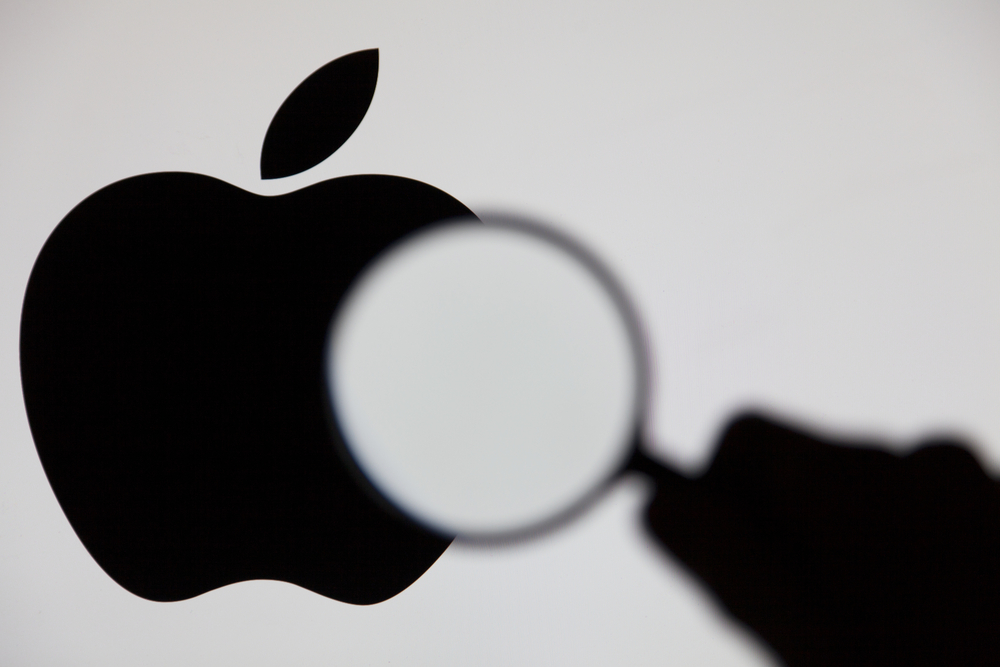Consumers Target Apple Following DOJ Antitrust Suit
“With this lawsuit, the [United States] is following the example of the European Union in its effort to micromanage digital competition and hobble major American competitors, including Apple. The EU has produced no leading platforms and very little real innovation in the digital sector, unlike the US. Why does the US government want to emulate that failed experiment?” – Alden Abbott
A number of individual consumers have filed suit against Apple, Inc. in California and New Jersey courts, piggybacking on the U.S. Department of Justice’s (DOJ’s) March 21 complaint accusing Apple of “broad-based, exclusionary conduct” amounting to monopolization of the smartphone market.
The DOJ’s sweeping complaint included a number of U.S. states as plaintiffs and charged Apple with “thwart[ing] innovation” and throttle[ing] competitive alternatives via its practices around the iPhone platform. The DOJ is asking the U.S. District Court for the District of New Jersey to enjoin Apple from engaging in the alleged anticompetitive practices, including:
“a. preventing Apple from using its control of app distribution to undermine cross-platform technologies such as super apps and cloud streaming apps, among others;
b. preventing Apple from using private APIs to undermine cross-platform technologies like messaging, smartwatches, and digital wallets, among others; and
c. preventing Apple from using the terms and conditions of its contracts with developers, accessory makers, consumers, or others to obtain, maintain, extend, or entrench a monopoly.”
On the same day, also in the New Jersey district court, iPhone customer Shoshi Goldfus filed a class action suit accusing Apple of exploiting the love consumers have for Apple products. Detailing much of the same history of Apple’s business model recounted in the DOJ complaint, Goldfus focused on the same five examples of how Apple has abused its dominant position as the DOJ did in its complaint: 1) by suppressing so-called super apps that support compatibility among different platforms and devices; 2) by suppressing cloud streaming games; 3) by deliberately degrading the quality of third-party/ non-Apple messages on messaging apps; 4) by making its smartwatches interoperable only with Apple phones; and 5) by denying access to digital wallets across platforms.
Among other requests for relief, Goldfus is asking the court to prevent Apple from: a) “using its control of app distribution to undermine cross-platform technologies such as super apps and cloud streaming apps; b) using private APIs to undermine cross-platform technologies like messaging, smartwatches, and digital wallets; and c) using the terms and conditions of its contracts with developers, accessory makers, consumers, or others to obtain, maintain, extend, or entrench a monopoly.”
Another lawsuit filed on behalf of Jared Schermer in the Northern District of California over the weekend similarly charged Apple with suppressing innovation via contractual obligations and “delaying, degrading, or outright blocking technologies that would increase competition in the smartphone markets by decreasing barriers to switching to another smartphone.” It focuses on the same five areas of anticompetitive behavior as Goldfus’ suit and requests largely the same relief.
A third suit, filed by Deborah Collins, Hunter Collins and Henry Morales, also in California, mirrors the other suits as well. The law firm in that suit, Hagens Berman, previously won $550 million in settlements from Apple in cases related to its ebook pricing and app store policies, according to Reuters.
In a press release, Attorney General Merrick B. Garland said Apple has blatantly violated antitrust laws:
“If left unchallenged, Apple will only continue to strengthen its smartphone monopoly. The Justice Department will vigorously enforce antitrust laws that protect consumers from higher prices and fewer choices. That is the Justice Department’s legal obligation and what the American people expect and deserve.”
Apple has refuted the DOJ’s claims in statements made to the press, characterizing them as being outdated and “dangerous”:
“This lawsuit threatens who we are and the principles that set Apple products apart in fiercely competitive markets. If successful, it would hinder our ability to create the kind of technology people expect from Apple—where hardware, software, and services intersect. It would also set a dangerous precedent, empowering government to take a heavy hand in designing people’s technology. We believe this lawsuit is wrong on the facts and the law, and we will vigorously defend against it.”
Alden Abbott, Mercatus Center research fellow and former FTC General Counsel, commented last week on the DOJ’s lawsuit, agreeing with Apple that it could set a dangerous precedent. “Under US Supreme Court precedent (e.g., Verizon v. Trinco), Apple has no antitrust duty to assist its competitors or to afford them special access to aspects of its platform, and it appears unlikely that the DOJ will win in court,” Abbott said in a Mercatus Center press release. He added:
“With this lawsuit, the [United States] is following the example of the European Union in its effort to micromanage digital competition and hobble major American competitors, including Apple. The EU has produced no leading platforms and very little real innovation in the digital sector, unlike the US. Why does the US government want to emulate that failed experiment?
“The DOJ Apple lawsuit is an assault on American innovation that will harm, rather than help, American consumers. It ignores the Supreme Court’s teaching that antitrust protects the competitive process, not individual competitors. Major globally powerful foreign firms would be the real beneficiaries of this lawsuit, weakening the competitive position of the US digital sector vis-à-vis China.”
Image Source: Deposit Photos
Author: InkDropCreative
Image ID: 294948498
Eileen McDermott
Eileen McDermott is the Editor-in-Chief of IPWatchdog.com. Eileen is a veteran IP and legal journalist, and no stranger to the intellectual property world, having held editorial and managerial positions at […see more]







